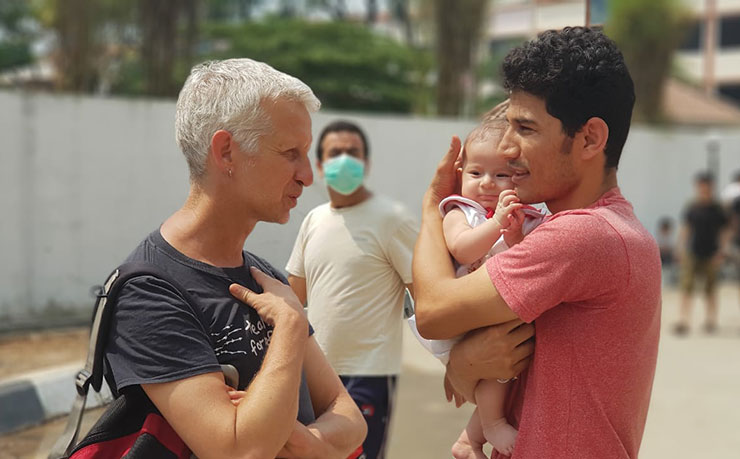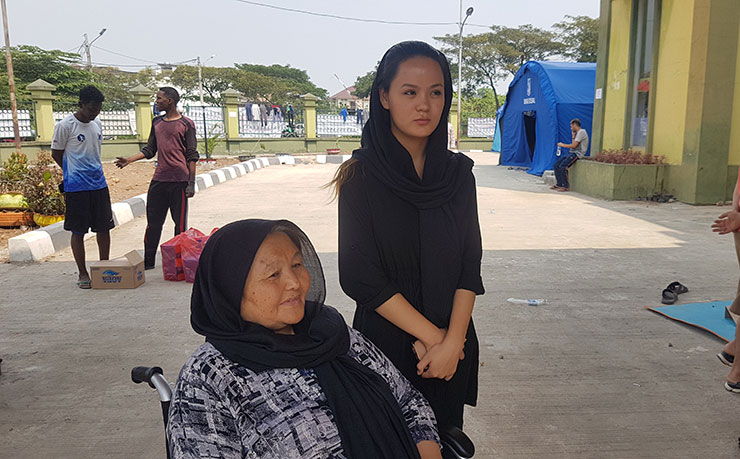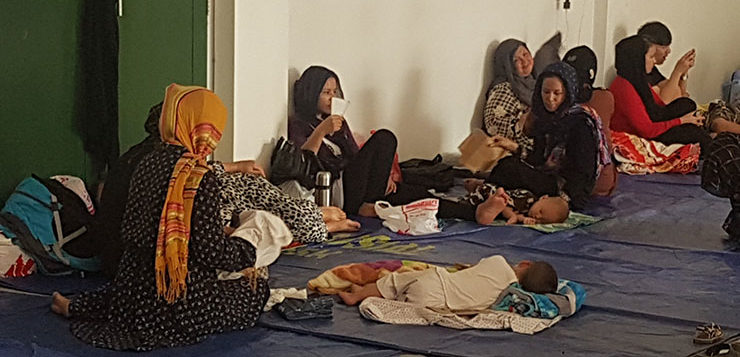DON’T MISS ANYTHING! ONE CLICK TO GET NEW MATILDA DELIVERED DIRECT TO YOUR INBOX, FREE!
Australia’s refugee scandal is not just limited to the islands of Manus and Nauru, writes Mark Goudkamp.
To Australia’s enduring shame, July 19 marked six years since Kevin Rudd’s hardline ‘PNG solution’ was announced.
A lesser known humanitarian crisis of Australia’s making is the more than 14,000 refugees stuck in Indonesia – some for over a decade. Like on Manus and Nauru, interminable waiting without basic rights has caused a mental health epidemic, driving some refugees to suicide. Many others have died from treatable diseases.
Australia is directly responsible for this limbo. Coalition MPs boast that they’ve militarily blocked the sea route from South Java to Christmas Island. Less publicised is Scott Morrison’s brutal (and one might say un-Christian) freeze on resettling refugees who registered with the United Nations High Commissioner for Refugees (UNHCR) in Indonesia after July 1 2014.
I just spent a week in Indonesia visiting many refugee friends I’d met online, as well as some of the inspiring projects, including schools, that refugees have set up and sustained in adverse circumstances.
Cisarua, a mountain town south of the capital that’s home to thousands of mostly Afghan refugees, has six schools. The teachers are refugees, paid only their transport costs. Some were teachers before they fled, but most are very young – the schools’ recently graduated students. The schools provide not only education; they help stave off depression in an otherwise hopeless situation.
However, my discussions with initiators of these amazing projects more often than not quickly turned to people’s primary preoccupation: resettlement.
Even before 2014, Australia took low numbers of refugees from Indonesia. The average of 50 a year between 2001 and 2009 rose to around 450 a year between 2010-11 and 2013-14. Now, Australia’s ban has ground a snail-paced process to a halt. Other UN resettling countries regard Indonesia as Australia’s zone of responsibility. Yet far away Canada still takes some – via both its official quota and via its community sponsorship program.
Until March 2018, most refugees trapped in Indonesia survived on an Australian funded International Organisation for Migration (IOM) allowance of $100 per month. Soon after the Turnbull government severed this support, hundreds of destitute refugees started sleeping under tarpaulin outside the Kalideres detention centre in West Jakarta.

Told by IOM they could no longer live there, in late June they moved en-masse to the footpaths outside the UNHCR offices in Central Jakarta. In my first two days in Jakarta, this protest camp swelled to close to 1000.
Being on a major thoroughfare propelled their normally marginal plight to the centre of Indonesian politics. It resulted in unprecedented coverage in most key English and Bahasa publications, and an outpouring of support from Indonesian people.
This embarrassed both the Jakarta government and the UNHCR. On the evening of 11 July, the refugees were told they’d be transferred to an acceptable shelter. They left in good faith. But it turned out that this disused military building in West Jakarta lacks basic facilities – running water, electricity or toilets (five portaloos were brought in). On the day I left, it was overflowing with 1,257 adults and 180 children.
As this story goes to press, a group of refugees has commenced daily protests outside the UNHCR offices in Central Jakarta, demanding a fair resettlement process for all refugees in Indonesia.
The refugees stranded across the archipelago can neither work nor access Indonesia’s education and health systems.
Refugee representatives, along with local human rights lawyers, are pushing for the Indonesian authorities to grant some dignity while refugees wait for resettlement. But with few exceptions, like Medan’s local government in Sumatra that recently opened its schools to refugee children, Joko Widodo’s 2016 refugee decree is yet to move beyond words.
These immediate demands are attainable. Malaysia’s 100,000+ refugees, mostly Burmese, have work rights. But resettlement countries must also lift their game.
The UNHCR’s report for 2018 showed a rise in the global number of refugees to 25.9 million (70.2 million including Internally Displaced People). Yet the proportion of refugees who were resettled plunged to less than 0.4 percent.
One morning outside Jakarta’s UNHCR offices, I chatted with ‘Ali’, an Afghan refugee stuck in Indonesia since September 2013. Suddenly, military planes roared overhead, oblivious to the effect on refugees queuing for counselling appointments. “It brings back terrible memories,” explains Ali. And such is the UNHCR’s under-resourcing, Ali has waited four months to see a counsellor.

When UNHCR’s rusty gate briefly swings open, I am heartbroken when I glimpse a noticeboard advertising “Assisted Voluntary Return” (AVR). That coming Friday, only AVR services were available.
Australia cut refugee financial support, but maintained AVR funding, using the IOM to convince refugees– primarily from Afghanistan, Somalia, Sudan and Iran – to return to danger. And the UNHCR, which for years pleaded with refugees to “be patient”, now too seems to encourage refoulement. But while many refugees increasingly view UNHCR as an accomplice to their suffering, they ultimately blame Australia.
Despite the federal election outcome, refugee supporters are as determined to fight the injustice of the resettlement ban as they are the injustices of Manus and Nauru.
DON’T MISS ANYTHING! ONE CLICK TO GET NEW MATILDA DELIVERED DIRECT TO YOUR INBOX, FREE!
Donate To New Matilda
New Matilda is a small, independent media outlet. We survive through reader contributions, and never losing a lawsuit. If you got something from this article, giving something back helps us to continue speaking truth to power. Every little bit counts.




